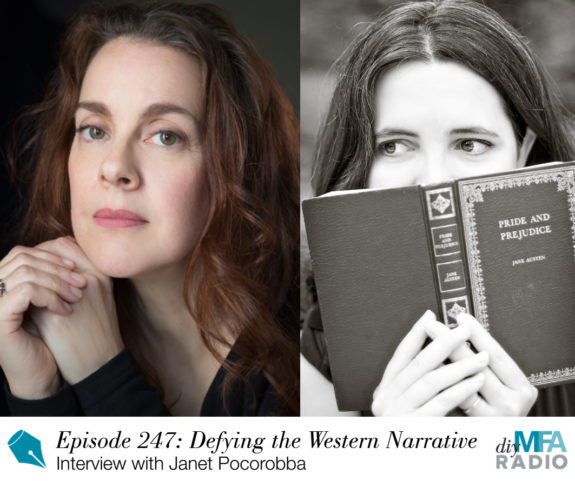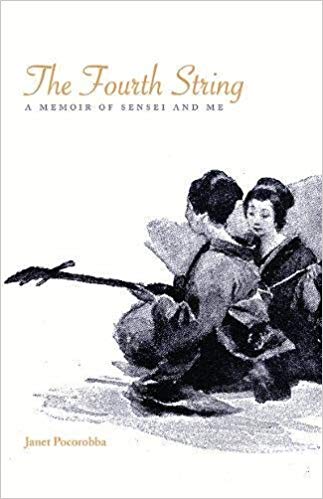Hey there word nerds!
Today I have the pleasure of speaking with Janet Pocorobba on the show!
Janet is a former features writer and editor at Metropolis magazine in Tokyo, whose memoirs, essays and reviews have appeared in many notable publications such as The Rumpus, The Writer, and Kyoto Journal.
She is the author of the memoir, The Fourth String: A Memoir of Sensei and Me, which is now available. In the memoir Janet shows the relationship between her and her sensei in the initial years of her apprenticeship learning to play the shamisen, a three-stringed Japanese instrument.
So listen in as Janet and I chat about this awesome book and how to defy writing structures both in the classroom and on the page.
In this episode Janet and I discuss:
- Presenting the self in relation to others in a memoir.
- How training in music gives you structure and form for your writing.
- The role absence plays in a narrative.
- Using the practice method to grow your craft.
- The relationship between the word mind and the content mind.
Plus, Janet’s #1 tip for writers.
About Janet Pocorobba
A former features writer and editor at Metropolis magazine in Tokyo, Janet’s memoirs, essays and reviews have appeared in The Rumpus, Harvard Review, The Writer, Kyoto Journal, Indiana Review, Provincetown Arts, American Athenaeum, and elsewhere.
Janet is also an associate professor of writing at Lesley University and the Associate Director of their Low-Residency MFA Program in Creative Writing.
Her memoir, The Fourth String: A Memoir of Sensei and Me, is now available from Stone Bridge Press.
To connect with Janet check out her website at www.janetpocorobba.com.
The Fourth String: A Memoir of Sensei and Me
The word sensei in Japanese literally means “one who came before,” but that’s not what Janet Pocorobba’s teacher wanted to be called. She used her first name, Western-style. She wore a velour Beatles cap and leather jacket, and she taught foreigners, in English, the three-stringed shamisen, an instrument that fell out of tune as soon as you started to play it.
Vexed by the music and Sensei’s mission to upend an elite musical system, Janet, on the cusp of 30, gives up her return ticket home to become a lifelong student of her teacher. She is eventually featured in Japan Cosmo as one of the most accomplished gaijin, “outside people,” to play the instrument.
Part memoir, part biography of her Sensei, The Fourth String looks back on the initial few years of that apprenticeship, one that Janet’s own female English students advised her was “wife training,” steeped in obedience, loyalty, and duty. Even with her maverick teacher, Janet is challenged by group hierarchies, obscure traditions, and the tricky spaces of silence in Japanese life.
Anmoku ryokai, Sensei says to explain: “We have to understand without saying.”
By the time Janet finds out this life might not be for her, she is more at home in the music than the Japanese will allow.
For anyone who has had a special teacher, or has lost themselves in another world, Janet Pocorobba asks questions about culture, learning, tradition, and self. As Gish Jen has said of The Fourth String, “What does it mean to be taught? To be transformed?”.
If you decide to check out the book, we hope you’ll do so via this Amazon affiliate link, where if you choose to purchase via the link DIY MFA gets a referral fee at no cost to you. As always, thank you for supporting DIY MFA!
Link to Episode 247
(Right-click to download.)
If you liked this episode…
Head over to iTunes, Stitcher Radio or Google Play and subscribe so you’ll be first to know when new episodes are available.
Also, remember that sharing is caring so if you know anyone who might enjoy this podcast, please tell them about it or leave us a review so other listeners will want to check it out.
Until next week, keep writing and keep being awesome!









